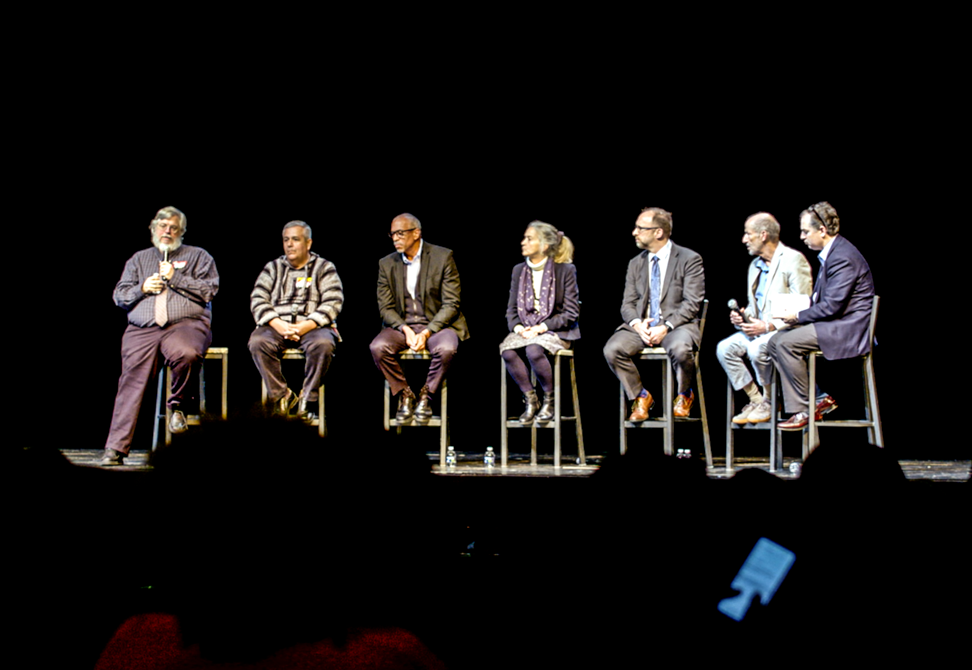A dream team of national education experts came together from all over the United States last week to weigh in on the future of T.C. Williams High School.
The panel, made up of some of the best known authorities on Hispanic and Latino students, high school redesign, and curriculum design shared their experiences and innovative ideas about how to best educate Alexandria’s students for the 21st century and beyond. They spoke with teachers, staff, students and the community in multiple sessions at T.C. Williams.
The innovative and inspirational brainstorming session was part of The High School Project, aimed at redesigning the high school experience to meet the needs of our changing student population and the workforce.
Listen to what the panel had to say:
The High School Project aims to rethink the way we are delivering our high school education and, at the same time, solve space issues that come with a growing student body. Since the summer of 2018, ACPS has been exploring innovative ways to solve our future capacity issues while redefining the high school experience to create a high quality, meaningful and applicable education for every student in our community.
In September 2019, the School Board voted to expand T.C. Williams High School into a Connected High School Network by building a new, expanded building on the site of its Minnie Howard Campus.
During an afternoon workshop, the six national experts shared their deep understanding of evidence-based practices that better engage students and have a positive impact on achievement. Their specialties include: designing student-centered curriculum and school buildings for 21st century learners; project-based and hands-on learning; raising rigor; marrying Career and Technical Education (CTE) with academics; connecting schools and communities; creating relationships and supports; the excellence gap; educating minority and low income students; and the best ways to execute a redesign process.
On Wednesday evening, ACPS held a community forum at T.C. Williams High School, moderated by Andrew Rotherham, an education policy professional and commentator, to allow the community to hear what the panel had to say.
Their recommendations included:
- Building a program that engages students so they don’t want to go home when the last bell rings, and one where teachers can’t wait to show up to work (Larry Rosenstock);
- Provide a senior year with college level and Career and Technical coursework (Dr. Robert Balfanz);
- Build community and trust by creating smaller learning communities within our high school (Dr. Pedro Noguera);
- Be as innovative with the core curriculum as with new programs (Dr. Heidi Jacobs);
- Bring the community into the school and students into the communities with multiple year problem solving projects, as well as with internships and apprenticeships (Dr. Heidi Jacobs);
- Find ways to better inform our immigrant and non-English speaking families about opportunities for students, and provide flexible scheduling for students who work (Dr. Jaime Castellano);
- Differentiate between performance and potential, and consider universal identification for Talented and Gifted coursework (Dr. Jonathan Plucker);
- Hold leadership steady in Alexandria so that reforms can take root and to improve morale among our teaching staff (all).
The panel was a result of a request by the School Board to ensure its recommendations for future programming are based on academic research and evidence-based practices. In October, the School Board identified equity, relationships and community, student achievement, student choice and multiple pathways as elements important to the redesign. They also highlighted the importance of Career and Technical Education, workforce training, project-based learning, and equal access for students to experiential, hands-on learning because it increases student engagement and helps them better understand their community.
Watch the panel presentation in full:

